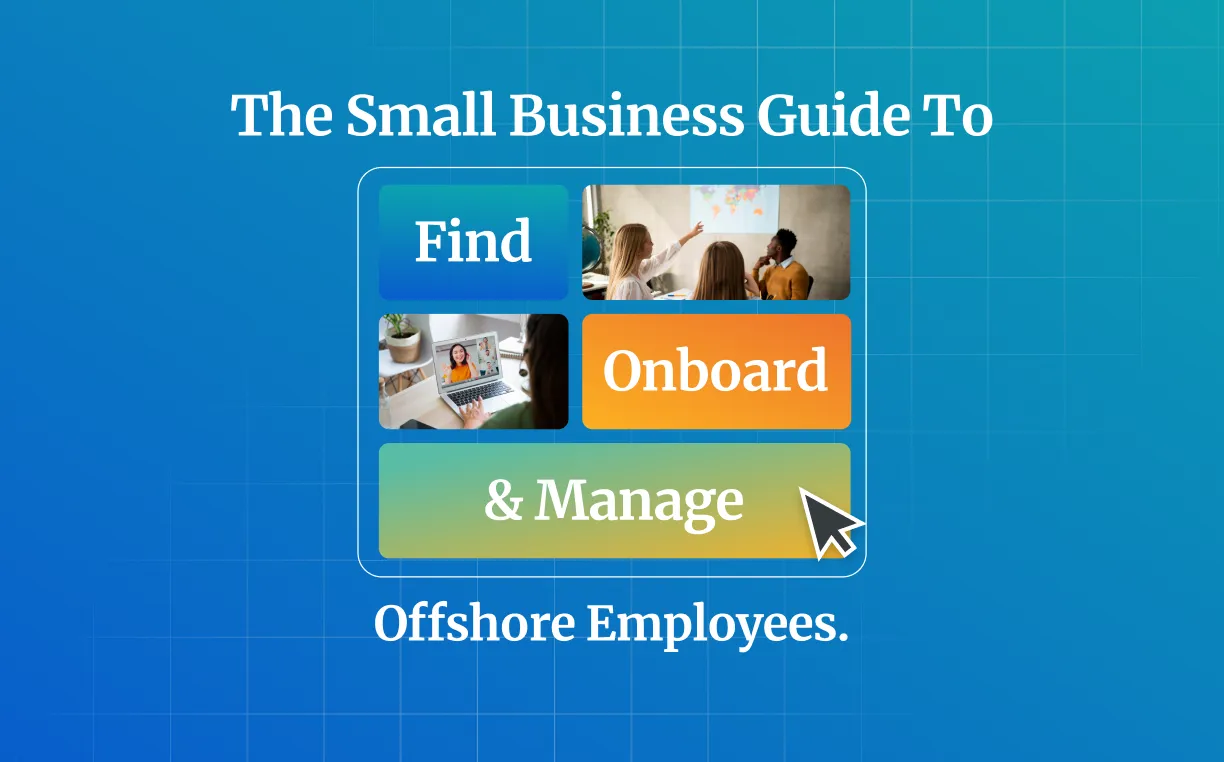The Ultimate Guide to Executive Assistant Job Duties
Key Takeaways:
- Strategic partner, not just support – Executive assistants (EAs) handle both administrative and strategic tasks, ensuring executives operate efficiently.
- Role varies by context – Corporate, startup, C-Suite, and remote EAs each have unique responsibilities tailored to their environment.
- Essential skills include time management and communication – EAs must juggle schedules, emails, meetings, and stakeholder interactions effectively.
- Tech proficiency is critical – Familiarity with tools like Google Workspace, Microsoft 365, Slack, Zoom, and project management platforms is a must.
- Proactivity and discretion drive impact – Top EAs anticipate needs, solve problems quickly, and handle sensitive information confidentially.
- Career growth opportunities exist – EAs can progress into roles like Chief of Staff, Operations Manager, or VP-level positions, expanding influence beyond administrative duties.
In the current business environment, an Executive Assistant (EA) is not simply a supporting role. EAs are strategic partners to organizational leaders, ensuring that everything operates with smooth efficiency. This holds true across all industries, from small startups to large multinational corporations.
In this guide, we’ll detail the primary responsibilities of executive assistants in different sectors. We’ll also outline the basic and advanced skills that they need to succeed. To give you a clearer picture of the role, we’ll provide some real-world job descriptions and answer some common questions about the position. Finally, for those of you who are looking to hire an EA, we’ve included a checklist at the end of this guide to help ensure you find a great fit for your organization.
What Does an Executive Assistant Do?
An executive assistant primarily supports top-level executives with administrative and strategic responsibilities. The specific duties of an EA depend on the size, structure, and industry of the organization. While scheduling and communication are baseline responsibilities, today’s EAs often handle project management, event planning, travel coordination, research, and even team leadership.
Executive Assistant Job Duties by Industry
Let’s break down the responsibilities of executive assistants in different contexts as well as look at examples of how these jobs may be described in a job posting.
1. Corporate Executive Assistant (Enterprise/Traditional Business Settings)
In large corporations, executive assistants usually report to top-tier executives such as the CEO, CFO, or COO. These EAs have a range of responsibilities that may include:
- Overseeing calendars and scheduling important meetings that cross departmental lines.
- Ensuring that board materials and corporate reports are in order and distributed in a timely fashion.
- Serving as the principal point of contact for internal and external communications.
- They are also often the liaisons to important corporate departments like legal, finance, and HR.
- Planning corporate gatherings or off-site meetings.
- Managing sensitive documents and information.
Job Post Example:.
“Provide assistance to the CEO and COO with intricate scheduling and travel arrangements. Ensure smooth communications with investors and coordination of board meetings. Uphold discretion and professional judgment at all times.”
2. Startup Executive Assistant
In startup settings, executive assistants take on many roles. They are usually part office manager, part project coordinator, and part executive support. Their responsibilities include classic tasks such as scheduling and calendar management. But they also tackle key startup functions like:
- Helping with recruiting and onboarding, managing office logistics and supplies.
- Overseeing certain software tools.
- Managing internal team communications.
- Assisting with marketing or product launches.
Job Post Example:
“Collaborate with our startup founder to set up meetings, oversee investor communications, and run all-hands events. You will also smooth internal operations and support team growth.”
3. C-Suite Executive Assistant (Top-Level Executive Support)
Collaborating with top executives requires enhanced discretion, strategic acumen, and the ability to influence outcomes. Executive assistants in this realm are often seen as direct extensions of the executive they support. They manage travel that is high-level and complex; they juggle schedules that are nearly impossible to coordinate without help; they prepare executives for meetings and then attend those meetings themselves; they take notes, follow up on action items, and ensure everything stays on track.
Serving as an intermediary between the executive and stakeholders. Managing personal responsibilities, including scheduling household events and organizing family travel.
Job Post Example:
“Serve as the CEO’s right hand. Predict what is needed, carry out high-level demands, and ensure that executive alignment exists across all departments.”
4. Remote Executive Assistant
The shift toward remote work has allowed many executive assistants to function entirely in a virtual capacity, often supporting executives across different time zones. These online EAs perform core tasks like virtual calendar and inbox management, but they also do much more. They coordinate remote meetings (Zoom, Teams, etc.). They handle cloud file organization and sharing. They use collaboration tools like Slack, Notion, etc. – and they help their execs use those tools too.
Job Post Example:
“As our remote executive assistant, you will support the executive team from anywhere. Strong skills in digital communication and time management are essential.”
Essential Skills Every Executive Assistant Needs
To excel in any of these positions, executive assistants require a blend of technical, interpersonal, and organizational proficiencies. They especially need to be good at:
1. Time Management
EAs keep their executives on track. They juggle priorities and work with and around their execs to get things done.
2. Communication
This skill is equally important for EAs as it is for their bosses. After all, they often serve as the front line for stakeholder and client interactions.
3. Discretion and Confidentiality
Executive assistants often deal with delicate matters. Being discreet is essential.
4. Technology Proficiency
Being proficient in the following tools is ideal: Google Workspace or Microsoft 365, Zoom, Teams, Slack, Asana, Trello, and Notion for project management, DocuSign, Dropbox, Notion, and CRMs
5. Problem-Solving
Executive assistants (EAs) must be quick thinkers and adaptable in the face of change. They ensure that nothing disrupts the executive’s workflow.
6. Initiative and Proactivity
The most effective executive assistants foresee what will be needed and assume full responsibility for tasks and projects.
Real-World Executive Assistant Job Description Examples
Here are a few more sample job descriptions drawn from real employer listings:
1. Corporate EA to CFO (Enterprise)
We’re looking for an experienced Executive Assistant to support our CFO. Responsibilities include calendar management, meeting preparation, and departmental coordination. Must have 5+ years in a similar role, strong Excel skills, and experience with corporate finance teams.
2. Startup EA to Founder (Tech Startup)
Provide support to our founder in areas of scheduling, travel logistics, and internal coordination. Also, manage communications with investors, assist in the preparation of pitch decks, and oversee the organization of company events. We need someone who thrives on ambiguity and loves the startup life.
3. C-Suite EA to CEO
We are in search of a highly seasoned Executive Assistant to support our CEO. This role is not your typical EA position; we require an individual who can maintain confidentiality, operate at a strategic level, and anticipate needs before they arise. The successful candidate will serve as the CEO’s right hand and partner in managing both the strategic and tactical dimensions of a private equity firm that operates at high velocity.
4. Remote EA for CEO (Fully Remote Company)
Provide support to our founder in areas of scheduling, travel logistics, and internal coordination. Also, manage communications with investors, assist in the preparation of pitch decks, and oversee the organization of company events.
Download: Executive Assistant Hiring Checklist
At the end of this article, you will find a checklist that hiring managers can download. This checklist helps ensure that those who evaluate resumes, interview candidates, and make final hiring decisions do so in a consistent and effective manner.
FAQs: Executive Assistant Role
What are the daily tasks of an executive assistant?
The daily responsibilities of an EA typically involve:
- Overseeing calendars and arranging appointments.
- Handling and responding to emails for the executive.
- Managing travel, including itineraries.
- Preparing agendas and taking notes for meetings.
- Ensuring deadlines are met and deliverables are tracked.
- Engaging with stakeholders.
- Structuring and maintaining internal documents or presentations.
How is an executive assistant different from an administrative assistant?
Although both positions are responsible for administrative work, EAs generally support top executives. They manage “big picture” operations and act as a protective shield for their bosses. Administrative assistants support larger groups of people with more general clerical work.
Do executive assistants need a degree?
Although a bachelor’s degree in business, communication, or a related field is common among EAs, it is not always required. Sometimes experience and reliability matter more, along with proficiency in relevant tools.
Can executive assistants work remotely?
Yes, particularly following the transition to hybrid and remote work models, many executive assistants now operate from afar.
What’s the career path for an executive assistant?
EAs can move into:
- Chief of Staff
- Office Manager
- Operations Manager
- Project Coordinator
- HR or People Ops
Some may even grow into VP of Operations or similar leadership roles.
What salary does an executive assistant make?
According to the U.S. Bureau of Labor Statistics, as of May 2024, executive secretaries and executive administrative assistants had a median annual wage of $74,260. In contrast, the more general category of secretaries and administrative assistants had a median wage of $47,460. The top 10% in this broader category earned over $76,550. Earnings for EAs vary significantly by industry.
How to Hire the Right Executive Assistant
When assessing candidates, hiring managers should focus on these aspects:
- Professionalism: Does the candidate exhibit a polished tone and demeanor?
- Tech fluency: Is the candidate knowledgeable about the common tools used in an office environment? What about collaboration tools?
- Responsiveness: How prompt and attentive is the candidate during interviews?
- Organizational ability: Can the candidate provide examples of time or process management that demonstrate they have what it takes to keep things running smoothly?
- Cultural fit: Would the candidate be a good addition to your company’s team?
- References: Were they trusted by past employers to handle delicate or important work?
Download our full hiring checklist PDF.
An outstanding executive assistant is invaluable; they ease the burdens of their executive, bring order to the company, and improve the efficiency of daily operations. When hiring for a remote assistant or a top-tier corporate EA, it’s essential to grasp the subtle details of the role to ensure you find a perfect match.
This guide will help you shape your hiring process, hone your job descriptions, and ready your onboarding procedures so that you can secure someone who will genuinely elevate your organization.






